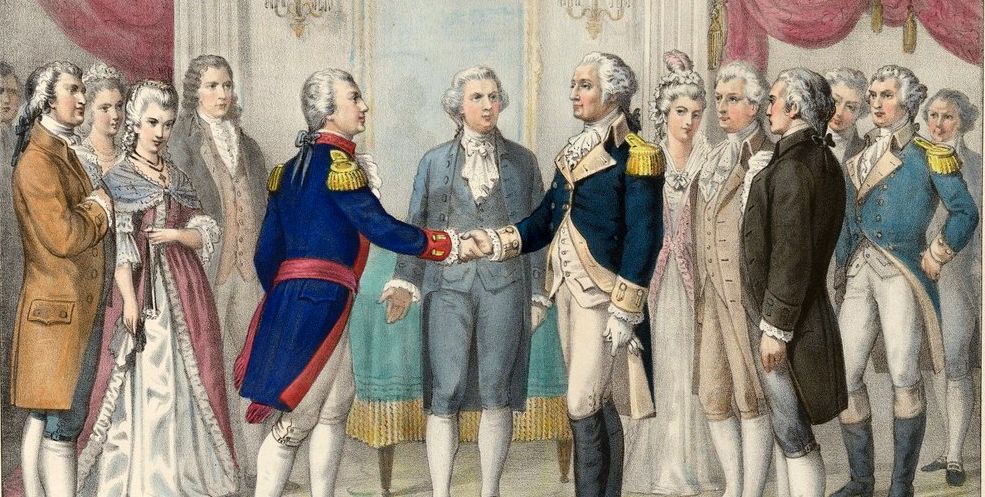Authors:
Historic Era: Era 3: Revolution and the New Nation (1754-1820s)
Historic Theme:
Subject:
Summer 2021 | Volume 65, Issue 5


Authors:
Historic Era: Era 3: Revolution and the New Nation (1754-1820s)
Historic Theme:
Subject:
Summer 2021 | Volume 65, Issue 5
Editor’s Note: We were disappointed when individuals protesting racial injustice last May spray-painted monuments in Lafayette Park, as we wrote at the time, since the vandalized statues of Lafayette, Kosciusko, and Von Steuben depicted young revolutionaries who came to this country to fight for democratic rights. So for this issue we asked historian Harlow Giles Unger to remind us why the Marquis de Lafayette was so important in the early history of our nation. Portions of this essay appeared in his delightful biography, Lafayette.

“Pronounce him one of the first men of his age, and you have yet not done him justice,” reflected John Quincy Adams. Turn back your eyes upon the records of time . . . and where, among the race of merely mortal men, shall one be found, who, as the benefactor of his kind, shall claim to take precedence of Lafayette?”
With those words to Congress in 1834, Adams plunged America into deep and universal mourning. Lafayette was dead, and Americans mourned as they had never mourned before, not even when Washington had died, thirty-five years earlier. For no one in the history of the nation had ever given of themselves as generously or as freely as “Our Marquis.”
Lafayette was the last of the world’s gallant knights, galloping out of Arthurian romance, across the pages of history, to rid the world of evil. Of all the Founding Fathers — the heroes and leaders of the Revolutionary War — only Lafayette commanded the unanimous acclaim and veneration of Americans. For only he came with no links to any state or region; only he belonged to the entire nation; and only he, among all who pledged their lives, fortunes, and sacred honor, sought no economic or political gain. He asked no recompense but the right to serve America and liberty, and, when Americans lost him, they knew that they and the world would never see his kind again — a hero among heroes.
An intimate and friend of world leaders over 70 years of earth-shaking social, political, and economic change, Lafayette led three revolutions that changed the course of world history and became the world’s foremost champion of individual liberty, abolition, religious tolerance, gender equality, universal suffrage, and free trade. He was arguably the wealthiest aristocrat in France, with close ties to the king, the royal family, and the entire court;